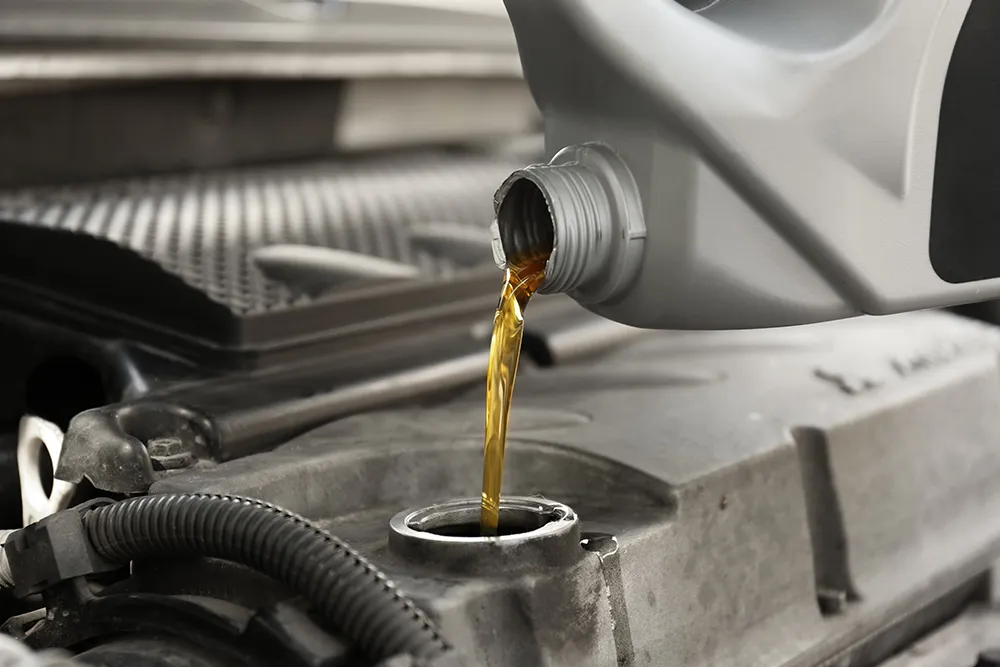As the seasons change and winter gives way to spring, it’s a perfect time to give your car some extra love and attention. One crucial aspect of car maintenance that often gets overlooked is regular oil changes. In this article, we will delve into the importance of spring oil changes and why it is vital to keep your car’s oil fresh.
Benefits of Regular Oil Changes
1. Lubrication
Regular oil changes help to lubricate the engine, ensuring that all moving parts work smoothly together. This reduces friction and wear and tear on the engine, extending its lifespan.
2. Temperature Regulation
Fresh oil helps to regulate the engine’s temperature by dissipating heat and preventing overheating. This is particularly important as the weather warms up during the spring months.
3. Improved Fuel Efficiency
Clean oil reduces friction within the engine, which, in turn, helps improve fuel efficiency. By getting regular oil changes, you can save money on gas and reduce your carbon footprint.
4. Preventing Build-Up
Over time, oil can accumulate dirt, debris, and other contaminants that can clog the engine and reduce its performance. Regular oil changes flush out these harmful substances, ensuring your engine runs smoothly.
The Impact of Spring on Your Car’s Oil
As the temperatures rise during the spring season, your car’s oil can break down more quickly. The heat can cause the oil to thin out, reducing its effectiveness in lubricating the engine. Additionally, the spring thaw can bring moisture into the engine, further degrading the oil quality. This makes spring the perfect time to schedule an oil change to ensure your engine is well-protected.
Signs That Your Car Needs an Oil Change
1. Dashboard Warning Light
If the oil pressure light on your dashboard illuminates, it’s a clear indication that your car needs an oil change. Ignoring this warning could lead to serious engine damage.
2. Loud Engine Noise
If you notice unusually loud engine noises while driving, it could be a sign that your engine lacks proper lubrication. Getting an oil change can help silence these noises and protect your engine.
3. Dark or Dirty Oil
Check your oil level and consistency regularly. Dark, gritty, or dirty oil indicates that it’s time for a change. Fresh oil should be amber in color and relatively transparent.
4. Excessive Exhaust Smoke
If you see thick, billowing smoke coming from your exhaust, it could be due to old or low oil levels. In this case, schedule an oil change as soon as possible to prevent further damage.
How Often Should You Change Your Oil?
The frequency of oil changes depends on several factors, including the type of oil used, driving conditions, and the age of your vehicle. As a general rule of thumb, it is recommended to change your oil every 3,000 to 5,000 miles or every six months, whichever comes first. However, be sure to check your vehicle’s manual for the manufacturer’s specific recommendations.
The Importance of Professional Oil Changes
While some car owners may attempt to change their oil themselves, it is highly recommended to have oil changes performed by a professional auto technician. Professional oil change services not only ensure that the job is done correctly but also provide an opportunity for a comprehensive inspection of your vehicle to catch any potential issues early on.
Final Thoughts
Spring is the perfect time to give your car the care it deserves, starting with a fresh oil change. By keeping your car’s oil fresh and clean, you not only improve its performance and longevity but also save money in the long run. Don’t neglect this simple yet crucial maintenance task – your car will thank you for it!

